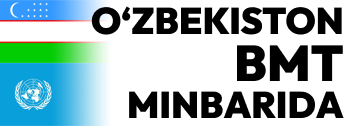--
--
--
Good news:
Lifestyle and Culture

Chinese woman offers apartment in Shanghai as reward to whoever finds her son who was lost 26 years ago

Imam Al-Bukhari and Sukarno: A cross-cultural journey supported by global philanthropy
Imam Al-Bukhari and Sukarno, a theatrical-musical production celebrating the shared cultural heritage of Indonesia and Uzbekistan, had its world premiere in Samarkand in November 2024. Featuring over 60 performers, the play brings to life the journey of Indonesia’s first president, Sukarno, to Uzbekistan in 1956. "This project represents a cultural dialogue," says Restu Imansari Kusumaningrum, the play's Artistic Director. "The arts need to be supported, not just by the government, but by the community—by private donors and philanthropists. Without them, many of these stories would remain untold." With a production cost of over $100,000, the production showcases the crucial role of private sector support in making such cultural initiatives a reality.
Sport

Uzbekistan joins Asian Cricket Council, strengthening regional ties

Uzbekistan to introduce three-stage youth sports championship with Presidential Olympics final

Uzbekistan and Azerbaijan aim to host FIFA U-20 World Cup 2027 with joint bid

Uzbekistan’s president reviews proposals to prepare for 2028 Olympic and Paralympic games
























